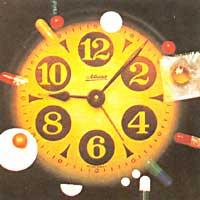What time are drugs?
Knowledge of these biological rhythms can lead to a more accurate diagnosis of certain diseases. On many occasions, medication management can be confused with a rhythm and have unexpected effects.
The effect of CURVE, as a muscle relaxant, is faster than at night if similar doses are injected. The drug LORAZEPAM, used as a sedative, is absorbed more about seven in the morning. ASPIRIN is eliminated faster in the urine at eleven o'clock in the evening than at seven o'clock in the morning. Many allergies are less efficient, but have more duration if taken in the morning. Medicines used to treat fungal diseases, when given at noon, are not harmful to the kidney.
All these data offer a great help to the therapeutic, although we must also take into account the specific characteristics of each person. When choosing the best time, in addition to the time, it is necessary to take into account the possible interferences with food and drinks: especially in terms of the quantity and speed of the medicines that are absorbed, such as antifungal KETOCONAZOLE and TETRACYCLINES, are absorbed better outside meals.

In addition to absorption, some foods have a negative effect on certain medications. In other cases, however, the interaction can be positive: sulfamides, for example, are absorbed better when sewed with fatty foods. As for drinks, milk is not very adequate: it should not be taken with antacids, tetracyclines or other antibiotics.
Water is really safe or, often, beneficial; it accelerates the speed of dissolution of active raw materials, relieves esophageal irritability produced by other substances (potassium salts or certain anti-inflammatories) and can be administered with all pharmaceutical forms of the other voice.
Alcohol can also confuse kinetics and metabolistm of many drugs. LITHIUM reduces excitation and irritation due to alcohol, but CAFFEINE or AMPHETAMINES are not able to remove its depressing effect. Alcoholic beverages have different actions or effects depending on the drug with which they are mixed: While reducing the absorption of soothing DIAZEPAM and PENICILLIN, they increase the absorption of NITROGENOUS DERIVATIVES and certain BENZODIAZEPINES.
The state of stomach and intestinal irritability caused by repeated alcohol intake facilitates intestinal filtration of some ANTIPARASITES.
The examples we have seen indicate that in order for the drug or medicine to be fully effective, we must take into account the foods and drinks that are taken at once, along with the biorhythms, and above all follow the indications of the doctor and the advice of the pharmacist.





